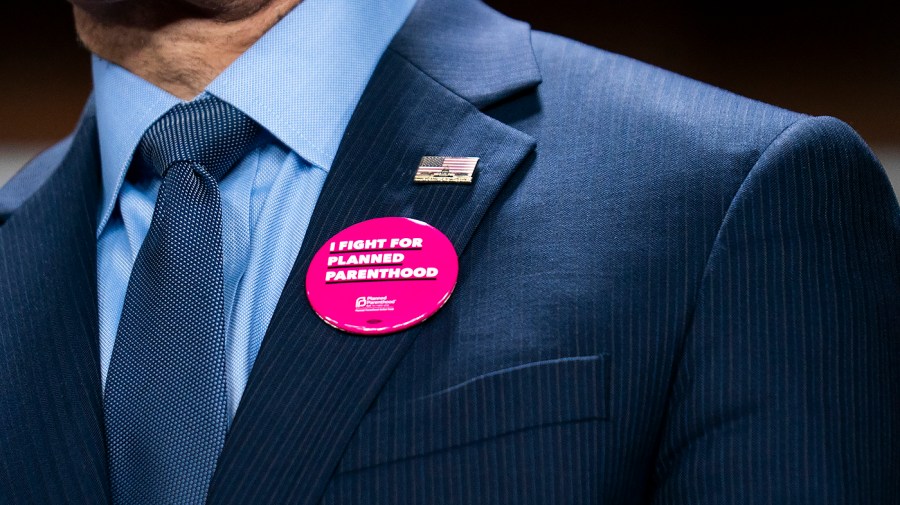Planned Parenthood stands to lose a huge portion of its federal funding under President Trump’s “big, beautiful bill,” which could result in the closure of up to 200 clinics, according to the organization.
Not only will many Americans lose access to abortion care if those clinics close, but millions of people treated by the provider may delay or go without primary health care.
“It’s going to pretty devastating if that happens,” said Nisha Verma, senior adviser of reproductive health policy and advocacy at the American College of Obstetricians and Gynecologists.
“The health care system is already struggling to take care of patients.”
A provision in the massive policy and spending package signed on July 4 bans health care providers who perform abortions and receive more than $800,000 in federal reimbursements from getting Medicaid funding for one year.
Planned Parenthood sued the Trump administration this week over the measure, arguing that its clinics make up most of the impacted entities. A federal judge approved its request to temporarily pause the Medicaid funding cut for two weeks.
A spokesperson for the Department of Health and Human Services (HHS) declined to comment on the lawsuit.
Massachusetts District Judge Indira Talwani, who issued the injunction, will hear arguments on July 21 on whether to extend the pause further.
Planned Parenthood officials argue that if Medicaid funding is withheld, the resulting elimination of health care services, staff layoffs and health center closures will “dire and compounding” consequences on the nation’s public health, according to the lawsuit.
Most of its Medicaid reimbursements are for health care services unrelated to abortion,since the procedure is covered by the joint state and federal program under limited circumstances like cases of rape, incest or if the pregnancy endangers the life of the pregnant person.
Planned Parenthood has offered sexual and reproductive health care services since its founding in 1916 and sees more than 2 million people a year throughout its nearly 600 clinics across the U.S., according to an analysis from the health care policy nonprofit KFF. Those services include cancer screenings, sexually transmitted infection testing and treatment and “well-woman exams,” which are general annual physical exams that take reproductive health into account.
If Medicaid reimbursements are banned for a year, what will suffer is its clinics’ ability to provide preventative and primary health care procedures, Planned Parenthood officials said, which will shake the country’s primary care landscape.
“It’s going to exacerbate the chaos of the fragile reproductive health care infrastructure [and] disrupt access to care like birth control screenings, cancer screenings and other important and essential preventative sexual and reproductive health care services,” said Karen Stone, vice president of public policy and government relations at Planned Parenthood.
In many communities, particularly in rural areas, Planned Parenthood member clinics are the only place where Americans with Medicaid can receive sexual and reproductive health care.
If those clinics disappear, it’s unclear where those patients would turn for care.
Stephvonne Steele, a 25-year-old eligibility specialist in Florida, knows firsthand how essential Planned Parenthood clinics are in some communities.
Steele needed to see a gynecologist for a yeast infection in 2020 and when she called a doctor’s office, she was told she could not be seen for months. The infection worsened to the point where she stopped being able to sleep, and she turned to her nearest Planned Parenthood clinic, which booked an appointment for her to see a provider within 24 hours.
“I would have been in trouble without being able to go there,” she said.
Even if there are other providers nearby, that does not mean that they will be able to accommodate the influx of patients that once used to rely on Planned Parenthood, said Alina Salganicoff, senior vice president and director of women’s health policy.
Many private OB-GYN offices, for example, do not take Medicaid due to the program’s low reimbursement rate. And like Steele, many Americans struggle with long wait times for doctors’ appointments, in part, due to a growing physician shortage.
The U.S. is facing increasing shortages of both primary care physicians and obstetricians and gynecologists. The Association of American Medical Colleges anticipates the country will have a shortage of 20,200 to 40,400 primary care physicians by 2036.
And about 3,000 fewer OB-GYNS will be practicing in the U.S. by 2030, according to a 2021 report from HHS.
One option for Medicaid patients is to visit a federally qualified health care center (FQHC), which is a community-based health care provider that receives federal funding to provide primary care.
But FQHCs, Verma said, are not equipped to serve the volume of patients that Planned Parenthood does.
Planned Parenthood health centers served 1.6 million — or 33 percent — of the 4.7 million people looking for contraception care in 2020, according to an analysis from the Guttmacher Institute.
FQHCs would need to increase their capacity by 56 percent — or by an extra 1 million patients — to meet the need for contraception care alone met by Planned Parenthood, the analysis found.
Delaying preventative care like cancer screenings or avoiding emergent care like STI treatment is going to make Americans sicker, Verma stressed. Conditions like cervical cancer can be prevented with regular pap smears, and many STIs, if left untreated, can cause serious health problems like infertility, organ damage, or even death.
She predicts that if more Planned Parenthood clinics close, more Americans will be stranded in “health care deserts” and suffer more progressive diseases.
“Some people don’t really realize how many people go to Planned Parenthood for some of their routine care,” Verma said.

